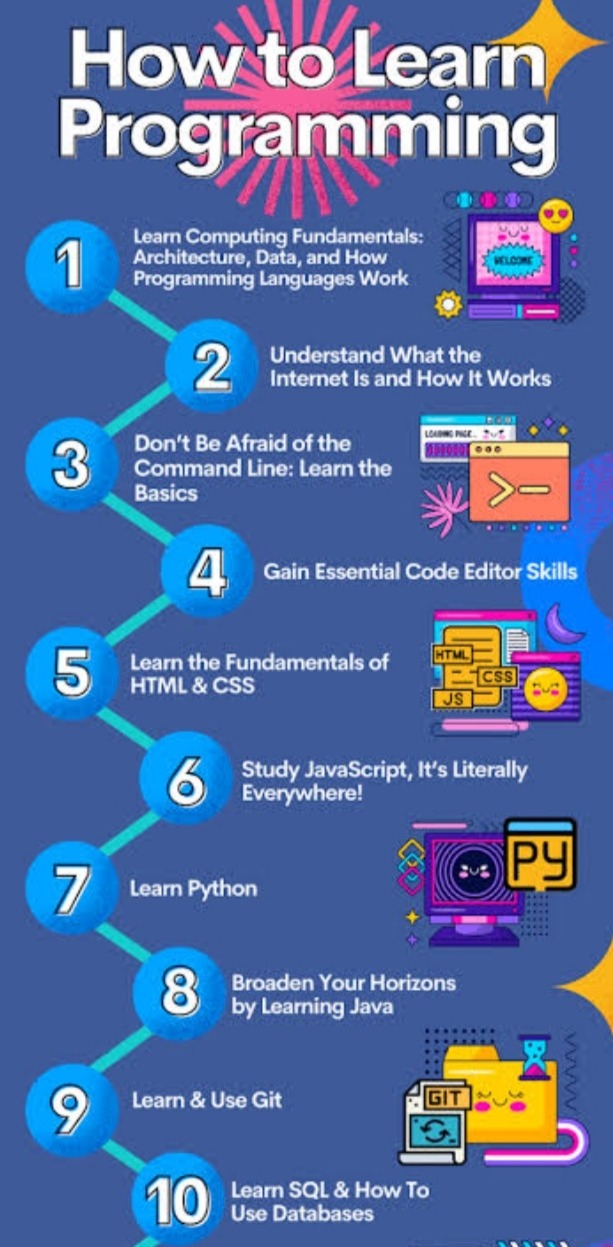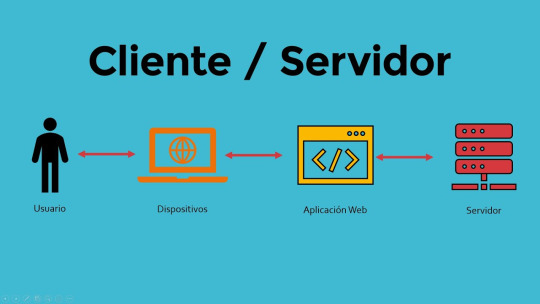#php vs asp
Explore tagged Tumblr posts
Text
JavaScript Frameworks
Step 1) Polyfill
Most JS frameworks started from a need to create polyfills. A Polyfill is a js script that add features to JavaScript that you expect to be standard across all web browsers. Before the modern era; browsers lacked standardization for many different features between HTML/JS/and CSS (and still do a bit if you're on the bleeding edge of the W3 standards)
Polyfill was how you ensured certain functions were available AND worked the same between browsers.
JQuery is an early Polyfill tool with a lot of extra features added that makes JS quicker and easier to type, and is still in use in most every website to date. This is the core standard of frameworks these days, but many are unhappy with it due to performance reasons AND because plain JS has incorporated many features that were once unique to JQuery.
JQuery still edges out, because of the very small amount of typing used to write a JQuery app vs plain JS; which saves on time and bandwidth for small-scale applications.
Many other frameworks even use JQuery as a base library.
Step 2) Encapsulated DOM
Storing data on an element Node starts becoming an issue when you're dealing with multiple elements simultaneously, and need to store data as close as possible to the DOMNode you just grabbed from your HTML, and probably don't want to have to search for it again.
Encapsulation allows you to store your data in an object right next to your element so they're not so far apart.
HTML added the "data-attributes" feature, but that's more of "loading off the hard drive instead of the Memory" situation, where it's convenient, but slow if you need to do it multiple times.
Encapsulation also allows for promise style coding, and functional coding. I forgot the exact terminology used,but it's where your scripting is designed around calling many different functions back-to-back instead of manipulating variables and doing loops manually.
Step 3) Optimization
Many frameworks do a lot of heavy lifting when it comes to caching frequently used DOM calls, among other data tools, DOM traversal, and provides standardization for commonly used programming patterns so that you don't have to learn a new one Everytime you join a new project. (you will still have to learn a new one if you join a new project.)
These optimizations are to reduce reflowing/redrawing the page, and to reduce the plain JS calls that are performance reductive. A lot of these optimatizations done, however, I would suspect should just be built into the core JS engine.
(Yes I know it's vanilla JS, I don't know why plain is synonymous with Vanilla, but it feels weird to use vanilla instead of plain.)
Step 4) Custom Element and component development
This was a tool to put XML tags or custom HTML tags on Page that used specific rules to create controls that weren't inherent to the HTML standard. It also helped linked multiple input and other data components together so that the data is centrally located and easy to send from page to page or page to server.
Step 5) Back-end development
This actually started with frameworks like PHP, ASP, JSP, and eventually resulted in Node.JS. these were ways to dynamically generate a webpage on the server in order to host it to the user. (I have not seen a truly dynamic webpage to this day, however, and I suspect a lot of the optimization work is actually being lost simply by programmers being over reliant on frameworks doing the work for them. I have made this mistake. That's how I know.)
The backend then becomes disjointed from front-end development because of the multitude of different languages, hence Node.JS. which creates a way to do server-side scripting in the same JavaScript that front-end developers were more familiar with.
React.JS and Angular 2.0 are more of back end frameworks used to generate dynamic web-page without relying on the User environment to perform secure transactions.
Step 6) use "Framework" as a catch-all while meaning none of these;
Polyfill isn't really needed as much anymore unless your target demographic is an impoverished nation using hack-ware and windows 95 PCs. (And even then, they could possible install Linux which can use modern lightweight browsers...)
Encapsulation is still needed, as well as libraries that perform commonly used calculations and tasks, I would argue that libraries aren't going anywhere. I would also argue that some frameworks are just bloat ware.
One Framework I was researching ( I won't name names here) was simply a remapping of commands from a Canvas Context to an encapsulated element, and nothing more. There was literally more comments than code. And by more comments, I mean several pages of documentation per 3 lines of code.
Custom Components go hand in hand with encapsulation, but I suspect that there's a bit more than is necessary with these pieces of frameworks, especially on the front end. Tho... If it saves a lot of repetition, who am I to complain?
Back-end development is where things get hairy, everything communicates through HTTP and on the front end the AJAX interface. On the back end? There's two ways data is given, either through a non-html returning web call, *or* through functions that do a lot of heavy lifting for you already.
Which obfuscates how the data is used.
But I haven't really found a bad use of either method. But again; I suspect many things about performance impacts that I can't prove. Specifically because the tools in use are already widely accepted and used.
But since I'm a lightweight reductionist when it comes to coding. (Except when I'm not because use-cases exist) I can't help but think most every framework work, both front-end and Back-end suffers from a lot of bloat.
And that bloat makes it hard to select which framework would be the match for the project you're working on. And because of that; you could find yourself at the tail end of a development cycle realizing; You're going to have to maintain this as is, in the exact wrong solution that does not fit the scope of the project in anyway.
Well. That's what junior developers are for anyway...
2 notes
·
View notes
Text
ASP NET Vs Other Frameworks In Web Development
In the ever-changing realm of web development, the selection of the appropriate framework is pivotal for constructing robust and scalable web applications. ASP.NET, a framework crafted by Microsoft, stands as a prominent contender in this domain. This article delves into a comparative analysis of ASP.NET alongside other well-known web development frameworks, exploring their features, advantages, and suitable use cases.
ASP.NET serves as a server-side web development framework, empowering developers to create dynamic and sophisticated web applications. Integrated into the broader .NET ecosystem, ASP.NET supports various programming languages such as C# and Visual Basic, fostering a versatile development environment. Notably, it enhances extensibility by adopting the Model-View-Controller (MVC) architecture, a paradigm that promotes the creation of simple and easily maintainable code, thereby improving the efficiency of web application development.
Comparative Analysis
ASP.NET vs. PHP:
In the realm of web development, the comparison between ASP.NET and PHP is common. While PHP, a server-side scripting language, enjoys widespread use, the combination with ASP.NET often provides performance and security benefits. ASP.NET applications, being compiled, exhibit faster runtime, and seamless integration with the Windows operating system enhances application security.
ASP.NET vs. Ruby on Rails:
Competing with ASP.NET, Ruby on Rails is renowned for its simplicity and adherence to composition principles. ASP.NET, with its robust Visual Studio integrated development environment (IDE) and extensive library support, attracts developers seeking a comprehensive development environment. The choice between Ruby on Rails and ASP.NET is often influenced by project-specific requirements and individual developer preferences.
ASP.NET vs. Django:
Django, a high-level Python web framework, shares similarities with ASP.NET in modularity and scalability focus. However, ASP.NET distinguishes itself through seamless integration with Microsoft technologies and effortless collaboration within the broader .NET ecosystem. This positions ASP.NET favorably for enterprises deeply immersed in the Microsoft ecosystem.
Key Features of ASP.NET
MVC Architecture:
ASP.NET utilizes the MVC architectural pattern, enhancing code organization and maintainability. The separation of concerns allows developers to streamline development and debugging processes by focusing on specific aspects of the application.
Integrated Development Environment (IDE):
Visual Studio, Microsoft’s powerful integrated development environment, serves as a valuable tool for ASP.NET developers. Features such as code completion, debugging, and testing contribute to an efficient development workflow.
Cross-platform Compatibility:
The introduction of .NET Core renders ASP.NET cross-platform, enabling developers to build and deploy applications on various operating systems. This flexibility broadens ASP.NET’s reach and accommodates diverse hosting environments.
Advantages of ASP.NET
Language Interoperability:
ASP.NET supports multiple programming languages, including C# and Visual Basic, providing developers the flexibility to choose the language that best suits their skills and project requirements.
Scalability and Performance:
The compiled nature of ASP.NET applications contributes to superior performance. Its capability to handle large volumes of concurrent users makes it an ideal choice for applications with scalability requirements.
Security Features:
ASP.NET incorporates robust security features, including authentication and authorization mechanisms. Integration with Windows security services enhances protection against common web application vulnerabilities.
The choice between ASP.NET and other web development frameworks depends on various factors, including project requirements, developer expertise, and organizational preferences. ASP.NET’s strength lies in its versatility, performance, and seamless integration with Microsoft technologies. As the web development landscape evolves, ASP.NET remains a formidable contender, offering a comprehensive solution for building modern and scalable web applications.
Whether opting for the simplicity of PHP, the convention-over-configuration approach of Ruby on Rails, or the modularity of Django, understanding the strengths and nuances of each framework is essential. In navigating the evolving technological landscape, decision-making should be driven by careful consideration of the specific needs and goals of web development projects.
0 notes
Text
What is a dynamic web page?
Websites these days are more user-friendly and made to function perfectly on all devices, including laptops, tablets, and smartphones. As voice search becomes increasingly popular, websites have responded by adding this feature to make browsing easier. The dynamic website is one of the most valuable features of all the exciting upgrades.
We'll talk about the advantages of dynamic web pages in this article. We will also examine the static vs dynamic websites.

What does a dynamic web page do?
A web page with updated information is often called a dynamic web page. As new posts are made constantly, news sites and blogs often use this page type.
Dynamic pages are also sometimes used on e-commerce sites where the goods or inventory may change constantly.
Dynamic pages are not the same as static web pages, which only change when the whole page is rebuilt. Informational sites and sites that don't need to be updated often tend to have more static web pages.
In what ways do dynamic web pages work?
A long time ago, the server was in charge of dynamically rendering the text of web pages.
But because current web browsers are so advanced, sending the assembly to the visitor's browser has significant benefits: it makes the server less busy. It lets users interact with the site faster.
Dynamic web pages let you do many different things, from customising a welcome message or a hero banner based on the type of visitor you have to making the whole experience very involved.
Web or single-page applications are dynamic web pages that let you do many different things.
In the past few years, many JavaScript frameworks have come out to make making web apps more accessible. Examples include React, Angular, and Vue.
Most of the time, the application only needs raw information in JSON format, and the framework puts together all the HTML in the browser to show it to the visitor.
Because there are so many dynamic web pages, it's essential to pick a backend solution that works with all of them. This way, you can always choose the best design for the job.
Why are dynamic web pages useful?
Dynamic web pages are interesting regarding experience management because they let you tailor the experience to each visitor. This differs from static web pages, which give all visitors the same content.
With so many native mobile apps, your users will expect your web experiences to have the same level of personalization and rich interactivity.
With dynamic web pages, you can send more targeted messages and make interactions smoother and faster. This will make your visitors and customers more likely to convert because they feel engaged and asked to interact.
As your customers get more involved, you will learn more about them, which will help you create experiences that are even more important to them. This creates a positive cycle.
Types of Dynamic Page
Dynamic web pages come in two categories.
Client-side scripting
Client-side scripting changes online pages when someone does something on that page, like clicking or typing.
Client-side scripts generate information that is displayed on the client. Content that is made on the user's computer instead of the server is called client-side content. In these situations, the user's web browser would get the page's content from the server, run the code built into the page, and then show the user the new content.
A web page can react to events on the client side with scripting languages like JavaScript and Flash.
Server-side scripting
Client-side scripting is used to make web pages change when they are viewed or loaded. Content that is created when a web page load is called server-side content. Server-side scripting is used on login pages, forums, entry forms, shopping carts, and other places because these web pages change based on what is sent to them.
A web page can react to submission events with scripting languages like PHP, ASP, ASP.NET, JSP, ColdFusion, and Perl.
Modern websites can change how each user sees the page while using both types of scripting to speed up the server's load time. Additionally, these scripts are safer, so when you do network security testing, you may not find any or very few holes in the system.
Static vs Dynamic Websites
Static websites have already built and stored a predetermined number of client-side language files on a web server. The website sends back HTML files based on the user's URL requests. The files aren't changed before they're sent to the client, and the page looks the same for everyone. By adding things like buttons, links, and images, you can still make static material exciting and fun to interact with.
On the other hand, dynamic websites show visitors different content differently based on who they are. The time, region, user settings, and other factors affect the web page's appearance. This method lets the user's experience be tailored to their needs. Static websites can work, but dynamic websites can improve users' experiences and make them look more professional. But they are harder to create because they need more skill and complexity.
Web code and database design are needed to make dynamic websites. They connect to a database using a server-side programming language, which lets them add interactive features and change the material. The dynamic nature of these websites depends on this connection, giving each person a unique experience.
Elements of a dynamic website
By making your website dynamic, you can make the information on your pages more useful and get more people to read it. Some things that all dynamic web pages have in common are:
Responsive page elements: dynamic websites can show pages differently based on the type of device and screen size. Examples are moving buttons, changing the format and typeface of text, and resizing pictures to fit the visitor's screen. Please find out more in our guide to responsive images.
Localization: a website's content can be dynamically adapted to the region's language from which pages are viewed.
Personalized suggestions: cookies let dynamic websites remember what users have looked at and liked. Based on information in a user's cookie, the page can give them a more personalized experience by suggesting content or products. This can make people much more interested in your website.
Adding content from other websites or social media: dynamic websites can add news or content from other websites or social media. These feeds will give you new, helpful content, even if the website owner can only change the content sometimes.
Dynamic visual display: Page parts on dynamic websites can move and rearrange independently or when the user does something. This can make the material more interesting and create a powerful visual effect.
How Are Dynamic Elements Used in Google Search?
Most people already know that Google uses dynamic features to give users a better experience, which is one of the best examples. Google can provide you with more relevant search results by using the following factors:
1. Location
Google uses an IP address or a user's past GPS location to show them more relevant results when they look for certain things. Most of the time, the results will show physical companies and places close to the user. These are grouped and pushed to the top of the results pages.
2. A peek into the past of the website
Google keeps track of all its users' past searches, clicks on search engine result pages (SERPs), and browsing habits in a unique profile. With this picture, Google can show the user search results that are more relevant to what they think they are interested in. It is also used to fill in more blanks in search results.
3. The device
Google will rank pages differently depending on what device a person uses to look. When you search on your phone, the system will give more weight to pages optimized for mobile devices and move pages that need to be optimized higher in the rankings.
4. Search Ads
Google shows paid search ads, also called pay-per-click (PPC) ads, next to organic search results, but they don't change the number of organic results shown. Instead, these search ads are made to fit the user's area. Then, even though they are using the same search question, people in different places will see other search ads.
5. Time of day
Google constantly changes search results to include new information, especially as events happen in real-time. When you look for "news and current events," the results may differ each time you refresh the page.
6. More Google Products
There are a lot of Google products out there, like YouTube, Drive, Blogspot, Calendar, Maps, Gmail for Business, and more. It's not a surprise that information from these products is shown next to the original search results. If someone searches "What time is my flight?" they might get the exact time in their Google Calendar.
Conclusion
A dynamic web page is an important part of exploring the internet and interacting with websites today. It gives you freedom, lets you make changes, and gives users information tailored to their actions or input. Its ability to connect to systems makes working with data easier and faster, which improves the user experience. Moving forward with dynamic websites is essential for the future of computer technology because they are changing how we use the internet. You must use this technology to stay current in this fast-paced digital world.

Janet Watson MyResellerHome MyResellerhome.com We offer experienced web hosting services that are customized to your specific requirements.
Facebook Twitter YouTube
0 notes
Text
PHP vs ASP.NET: How Do They Differ?
This PHP vs. ASP.NET blog is designed for you if you are a reader who works in the backend development sector.
When it comes to the development of websites and applications, PHP is one of the most used frameworks. There are a variety of different frameworks that can be utilized to simplify the work of the developer. Despite this, we are familiar with the server-side programming language used by more than 77.4% of the websites that are now online.

The ASP.NET framework is one that is open-source and powered by Microsoft. In addition, if you have websites that are developed on it, we offer Windows hosting for shared, virtual private server (VPS), reseller, and dedicated hosting.
After designing a website, you will need to sign up for web hosting. Before that, it was all about the framework, which is the basis upon which websites are constructed.
And here we are, pitting two significant brands against one another: ASP and PHP. Let's find out who came out on top of the competition, shall we?
What Exactly is PHP?
The Hypertext Processor, also known as PHP, is an open-source framework that is utilized in the development of websites. Under this, you'll find a variety of other subcategories, like Laravel and many others. The majority of developers agree that Laravel is the most superior PHP framework. In addition, we have discussed this subject in our blog post titled "Why Is the Laravel PHP Framework the Best?" Take advantage of the opportunity to read it!
You can rely on our PHP hosting services, which are preferred by many communities of developers, to increase the effectiveness and performance of your website.
In addition, we will not go over the history of this framework because it has already been discussed in our earlier articles comparing PHP and JavaScript.
This location will eventually make available further information. Therefore, you shouldn't abandon this blog. Because it is so straightforward to incorporate into HTML code, PHP stands out among other languages. It does so by analyzing the PHP code that is stored on a web server and forming either the entirety or a portion of an HTTP response based on its findings. In comparison to ASP, the programming language PHP is easier to understand, which gives it an advantage.
And about market share, let's be really transparent with one another! When compared to ASP.NET, PHP currently holds the majority.
But hold on! In the battle between PHP and ASP.NET, you shouldn't crown PHP the victor just yet. Let's talk about ASP.NET, another platform that competes with it.
ASP.NET: What exactly is it?
Active Server Pages are what the entire abbreviation for ASP stands for, and .NET is an abbreviation for Network Enabled Technologies. It is constructed using CLR, which stands for Common Language Runtime. Because of this, writing code in ASP is simple and does not require knowledge of any.NET language. ASP.NET is a framework that may be used to develop dynamic content-driven websites, as well as online applications and web services. It is a component of the Microsoft.NET platform, and we advise our customers to go with ASP.NET Hosting since it ensures that all Windows programs and applications are compatible with the framework.
Building dynamic websites, web apps, and services are all possible with the help of ASP.NET. Because it is a server-side web application framework that is open source, CRMs and corporations find that it is the ideal solution for developing websites.
Microsoft first introduced it in 2002 with the intention of satisfying the scalability requirements of large businesses. Building enterprise resource planning (ERP) applications, console apps, and enterprise-level customer relationship management systems (CRMs) is simple with ASP.NET. The best user interface is provided to developers, and with it, developers can provide built-in caching functions.
The great thing about it is that it is compatible with every programming language.
Now that we've got that out of the way let's compare and contrast these programming languages some more.
Compare and contrast PHP vs ASP.NET, and Learn the Differences Between Them
1. Cost
PHP is superior to ASP.NET in just one respect, yet this advantage cannot be overlooked. PHP is open-source and free, but ASP.NET is owned by Microsoft, which also charges a price for website hosting.
If you are already considering contracting out the development of your ASP.NET website, the prices that are quoted to you should be competitive enough to dissuade you from doing so.
In addition, ASP.NET development services can only be run on Windows computers, whereas PHP can be executed on computers running Mac OS X, Microsoft Windows, or Linux. Users of Macs and Linux can have ASP.NET executed on their computers by utilizing the Mono project.
2. Capacity to Grow
A web application written in PHP is just as scalable as a web application written in ASP.NET. It is more crucial to hire developers with the right skills than it is to select a language that can scale. In this regard, the state of your company should be taken into consideration. If you are a do-it-yourself entrepreneur interested in working with Drupal, you should consider PHP rather than ASP.NET.
When hiring a lead developer or a team to build your website, it is ideal to defer to the most talented individuals who are currently available. It shouldn't make a difference if that talent works in PHP or ASP.NET if your organization is already using either of those languages, so long as they are both in use.
If you engage PHP coders, this will show up as a vulnerability in your website's general framework, despite the fact that PHP is more cumbersome than ASP.NET. It is also essential to remember that the NET development pool includes ASP.NET in its membership.
3. Be a supporter
Do you need help with the technical aspects of both of these? In this parameter, PHP has a sizable community of developers hailing from a wide variety of linguistic and cultural backgrounds. Each and every one of your questions will have an answer inside the PHP community.
The same is true for ASP.NET, as devoted developers and support contributors are always prepared to lend a helping hand to users in a variety of online communities. There will be solutions developed for every conceivable ASP.NET problem.
Obtain the answers you need and the solutions you need to solve problems. In addition, PHP hosting and Windows hosting service providers are standing by 24 hours a day, seven days a week, to answer any questions you may have regarding the operations of your website host.
4. Velocity and overall performance
The speed of your website is not determined by the programming language you use; this is a widespread misunderstanding regarding the performance and speed of websites.
The performance differences between websites built with PHP and those built with ASP.NET are, however, extremely minimal.
Each online application must do database queries and then send the results to the web server, which are then delivered to the browser of the end user.
In order to accomplish what has to be done, the programming language must interface with the web servers and the database.
Conclusion:
Web development using either ASP.NET or PHP is just as capable of accessing file systems, locating pictures, and displaying pages on a web server. The pace of these performances can be affected by a variety of factors, including database servers, end-user computers, bandwidth, and more.
There is a widespread misunderstanding that ASP.NET, which is used for online development, is a more elegant language than PHP.
It is true that ASP.NET does not allow as many irregularities in its code while still being able to run (which technically makes it an easier language for beginners to learn), but there are very few business benefits from being able to create "prettier code." ASP.NET does not allow as many abnormalities in its code as other languages do while still being able to function.
Popular websites created in PHP, should debunk any perception that PHP sites perform less well than ASP.NET sites. This is despite the fact that many professional PHP developers could be opposed to the idea of constructing a site in PHP.

Dollar2host
Dollar2host.com
We provide expert Webhosting services for your desired needs
Facebook TwitterInstagram
0 notes
Text
PHP vs Python: Which is Best for Web Development?

When venturing into web development with React, selecting the appropriate technology and programming language becomes pivotal for project success. This choice often presents a challenge to developers, as they grapple with the decision of which programming language to adopt for their React-based projects. Making an informed decision here sets the foundation for an efficient and effective development journey.
The choice between PHP and Python has become a pivotal topic for discussion in the realm of web development, especially for ecommerce projects. Ecommerce web development company India is rapidly growing, PHP and Python have emerged as popular contenders for building robust online platforms. As businesses seek the most suitable language, the decision hinges on factors like ease of use, performance, and the specific project requirements.
In the competitive landscape of web development companies in India, businesses are faced with crucial decisions regarding the choice of programming languages. Factors such as ease of use, performance, and project requirements play a pivotal role in this selection process. In this blog post, we will delve into a comparison between PHP and Python, two widely used languages, to determine the optimal choice for effective web development solutions.
What is Python?
Python is an open-source programming language developed in the year 1991 by Guido Van Rossum. It is one of the most commonly used languages due to its high level and easy-to-understand syntax.
According to the survey by Stack Overflow, Python is one of the most preferred programming languages. Most of the companies and developers around the world are using Python web development.
What is PHP?
PHP or Hypertext Pre-processor, is an open-source server scripting language that is used for creating interactive and engaging web pages. This programming language comes with many features, libraries, plugins, and add-ons that increase community support and functionalities.
PHP language was developed by Rasmus Lerdorf in 1995. Earlier, PHP was named as Personal Home Page, which was later changed to Hypertext Pre-processor. An advantage of using PHP language is it supports all web browsers.
PHP is a practical, flexible, and fast programming language that can handle dynamic content on HTML sites, session tracking, and databases.
Features: PHP vs Python
PHP
Open-source language, anyone can download and use it for free.
PHP is easy to use and code than other programming languages.
It is more efficient than other scripting languages like ASP and JSP.
Offers access to log in by creating a summary of the recent user accesses.
Provides database integration and supports distinct databases such as MySQL and Oracle.
It has predefined error-reporting constants that generate warning or error messages.
Python
Python is an easy-to-learn programming language.
Provides an ideal structure and support for large applications.
It can operate on different hardware platforms utilizing the same user interface.
Python can be integrated with C, C++, and Java programming code.
It’s easy to incorporate low-level modules in Python interpreter.
Python offers high-level dynamic types of data and support for dynamic type checking.
Its features support automatic garbage collection.
It supports an interactive mode of testing and debugging.
Pros and Cons: PHP vs Python
Here, we will compare the pros and cons of PHP vs python for web development.
Pros of PHP
Has a large ecosystem.
Flexible and platform-independent.
Several open-source PHP frameworks are available to use for free.
Offers many pluggable frameworks, Open-source and object-oriented.
Supports different database interfaces such as No SQL, PostgreSQL, and so on.
It is supported by many operating systems and works cross-platform.
Encourages top-notch debugging.
Provides in-built SQL support.
Offers support for database collection modules.
It supports all operating systems like Windows, Linux, and UNIX.
Cons of PHP
Delayed and wired performance.
Not apt for content-based applications.
Utilizes weak typing that can lead to false knowledge and data to users.
Its core behavior can’t be changed.
There’s no IOT alliance.
Fewer security protocols and features.
Pros of Python
Easy to learn and maintain.
An open-source and uniformly unfolding language.
Enables cross-platform code reusability.
Object-oriented and versatile language to deploy.
Offers WORA functionality.
Helps in developing GUI apps.
Has automatic garbage collection.
It can be integrated easily with other languages, such as Java or C++.
Provides libraries like Tenseorflow for math-intensive tasks.
Cons of Python
Creates delays in web app testing.
It utilizes an enormous amount of memory to help developers in easy development.
Operates slower than other web development languages.
Not of much use in mobile computing browsers and mobile app development.
It has dynamic typing, which makes error detection more difficult.
It’s too large for a simple and small app or website.
Run time errors occurs due to duck typing.
When Should You Select PHP?
PHP is a commonly used server-side scripting language among developers. The best use cases in which you should select PHP:
For developing blogs, websites, and web applications.
Work effectively on the server side.
Less investment.
When Should You Select Python?
Python programming language has gained popularity in recent times. Below we have given some of the best cases in which you should choose Python.
For operating in the areas of robotics and data science.
When you want accurate and extensive data analytics.
Developing websites using the Django framework.
Why opt for PHP?
Here, we will give you some reasons why you should opt for the PHP programming language.
Open-source language, easy to download and use.
Easy to learn and operates effectively on the server side.
This scripting language can run on distinct platforms such as Windows, Mac OS X, Linux, and UNIX.
It’s compatible with every server, like IIS, Apaches, and so on.
Supports a broad range of databases.
Why opt for Python?
As you know, there are many advantages and disadvantages of using Python. Here, we will tell you why you should choose Python for web development.
Python language is easy to use and maintain.
Python syntax is quick to understand and debug as well. Therefore, its source code is easier to maintain.
It has a garbage collection feature and memory addresses accordingly.
It comes with many pre-built libraries.
Python supports GUI apps such as Django, Tkinter, WXPython, etc.
It’s a versatile and portable language. You can run Python on different types of operating systems or platforms.
Python comes with a database-friendly interface that can store a colossal amount of data for commercial DBMS systems.
It has an interactive shell that helps in unit testing before deploying a product.
Comparison: PHP vs Python
Above, we have given the features and pros & cons of PHP vs Python. In this section, we will give you a comparison between PHP vs Python in accordance with different parameters.
Parameters
Python
PHP
Release
1991
1995
Learning curve
Easier
Steep
Language type
Specialized for web development
General purpose programming language
Syntax
Clear & concise
Complex
Security
High
Medium
Readability
High
Low
Database connectivity
Faster
Slower
Debugging
Fast
Slower
Performance
Lesser support
Faster
Supported Frameworks
Flask, Django, Web2Py
Laravel, Zend, Codelgniter
GitHub Stars
40.9k
31.5k
TIOBE Rating
1st position
9th position
Forks
20.5 k
6.9k
Major Users
Instagram, YouTube, Quora, Reddit
Facebook, Yahoo, Flickr, Tumblr
This comprehensive comparison between PHP vs Python can help you to choose the right language for web development. Now, we will compare some other elements that would give you a clear picture of both PHP vs Python.
1. Ease of Learning
Python is an easier language to learn compared to PHP. If you are a beginner, then Python is a good choice as you can learn it quickly. Python programs are shorter as well as easy to write in comparison to other languages.
PHP programming language is made for creating sophisticated web apps. It’s not a general-purpose language, and it takes time to learn it.
2. Ease of Use
Python is an open-source programming language that is versatile and portable. Python’s syntax is simple, and coding is easy to learn compared to PHP. But PHP is not just an ordinary programming language it’s used for creating dynamic web pages with HTML. This makes PHP more difficult to use than Python.
3. Community Support
Both PHP and Python provide good community support. PHP has been in the market for a long time and has a large community of developers. Therefore, you can immediately get support if you opt for PHP.
However, there are even many Python developers who constantly develop python apps. So, the community support in Python is also good. Consequently, we can’t say whether PHP or Python is better at providing community support.
4. Flexibility
Nowadays, web apps backed by Machine Learning are in high demand. Also, ML is a significant part of Python. Python provides many machine-learning libraries, such as Tensorflow, Theano, Pandas, and Scikit-learn. Additionally, these libraries are rapid, unique, & robust and work effectively with a web framework.
Nonetheless, Python programming language can be used in many other fields apart from web development. But when it comes to PHP, it’s best for web development. Therefore, we can say Python is a better choice here.
Our skilled developers deliver the most promising web development solutions to make dynamic websites for your business.
Talk to Expert
5. Speed to Market
Python provides a comprehensive set of modules and third-party libraries to help developers finish the project faster. One of the popular web frameworks written in Python is Django. It utilizes the MVC pattern to allow developers to create apps fast using a significant division of concerns and reusability.
PHP also has a vast set of tools, frameworks, and libraries. Laravel is a popular PHP framework that allows the MVC pattern. Additionally, it comes with many helpful functionalities for web development, like routing, templating, authentication, and so on.
6. Web Frameworks
You get robust and well-designed web development frameworks both in PHP and Python. Most of the big businesses utilize web frameworks that PHP provides. For example, Laravel and Symfony are mature web frameworks, and a huge community supports them. So, we can say PHP makes web development easy.
Python also has many exceptional frameworks that are highly scalable, easy to use, fast and secure. It’s two most popular web frameworks are Flask and Django. If you want a shorter development period, then you can choose Django over PHP-based frameworks.
7. Library Management
Python uses Pip to handle and deal with packages. Pip ensures that Python app development is easy, rapid, and meets development needs. Python has powerful library management compared to PHP. It has a wide range of packages and tools that assist and make web app development easier. So, in terms of library management, Python clearly wins it.
8. Security
When it comes to security, most businesses prefer using Python. For instance, Django offers many pre-built security features that aid in safeguarding the apps from distinct security breaches & threats.
Apart from that, many government organizations rely on Python as their secret hacking tool. Most of the security problems are addressed by its large community support. However, PHP is less strong than Python in aspects of security.
9. Environment Management
In terms of handling environments, Python is the best programming language. It has a Virtualenv system that aids in installing different versions of the language and switching between them immediately.
PHP has no comparison with Python when it comes to handling environments. There’s an analog of PHP, VirtPHP, but it’s archived and not maintained. Therefore, most of the developers opt for Python.
10. Debugging
Python has an in-built debugger called Python Debugger or PDB. It utilizes many debugging strategies. PDB enables dynamic typing and lets developers work effortlessly without stating things at the start of a program.
PHP also comes with an XDebug package for handling bugs and error-checking the codes. But PHP development is quite slow in identifying and removing bugs. Therefore, it often experiences security issues.
The Bottom Line
PHP vs Python: Which One You Choose for Web Development?
Our skilled developers delivers the most promising web development solutions to make dynamic websites for your business
Book an appointment with us
From the blog, you must have inferred that both PHP and Python are good for web development. However, there are many aspects in which Python wins over PHP. But this doesn’t mean that you only have to opt for Python. The selection of programming language majorly depends on the complexity and needs of the project.
Sphinx Solutions is a leading and trusted web app development company. Our team of web developers can help you create the best web apps for your business based on your specifications. Schedule a call with our experts to get an estimation for your web app development project, or email us at [email protected].
PHP vs Python: FAQs
1. Why choose Python over PHP?
Python is chosen over PHP for web app development due to many reasons, such as ease to use, simple syntax, flexibility, security, high performance, etc.
2. Which programming language is secure: PHP vs Python?
Python is a preferred programming language when it comes to security as it has many security features compared to PHP.
3. Why is Python used mostly?
Python is a general-purpose programming language and is utilized in web development, mobile app development, AI, ML, game development, big data, and so on.
Browse More Related Article
1. React and Nodejs: The Best Combination for Web Application Development
2. A Timeless Guide on How to Expand Your Native App to a Web App
0 notes
Text
HAPPY CODING!
So the coding bug bit me when I was in 11th grade. I even remember the first handbook that I bought myself, I would literally read every book on programming I could get my hands on. I would search up for articles online and subscribe myself to a dozen of newsletters only to enhance my knowledge.

With every passing day, my interest would only grow deeper. I could feel a completely engrossed plus intrigued self of mine grow fonder and fonder of typing lines of code on the IDE, completely devoted to and immersed in the editing, compiling and debugging cycle (a.k.a the 3 phases in the development of a program). For some a part of course while for some a learning pathway, I definitely knew what it meant to me. For me, it was not only an activity fun by nature but also definitely something that would everytime take me to a creative space, my happy place:) to be more descriptive, a place that would inspire me with new ideas and empower further creativity.
The first programming language that I made myself familiarize with was C++ where I started with very basic programs and soon shifted towards a more advanced level. I loved it how the very concept of programming would challenge me everyday as I would write pieces of code and rectify errors everytime I would compile a program, boy it surely did teach me patience and the need to be accurate. After learning C, I opted to go forth with teaching myself SQL and DBMS concepts. It surely was a damn absorbing and captivating experience.

C and C++ were indeed riveting, but what piqued my true interest was learning to code in python. Python has its own advantages that encouraged me to delve further into "The World of Python". I surely understood why python ranks among the most popular and fastest-growing languages in the world and why it is preferred by most of the programmers. With its extensive support libraries, versatility and high efficiency that it provides, it surely stands out among the various other programming languages. Being dynamic in nature, it is free and open source and supports high level programming, the biggest advantage however being that it follows a simple syntax that is very much similar to the English language.

So I began to code in python and it was one amazing experience. Next, I taught myself the nuances of Django, coding on VS Code Editor and finally I actually built my own website. It was a unique and liberating feeling, something that you sense when you try out something different in life, when you cognize you are no longer pigeonholed!
I would implement my front-end skills that I possessed (HTML, CSS, JavaScript with a bit of bootstrap added to it) and build websites the way I wanted, create content and try to make them as interactive as I could. It was sheer bliss. Taking online help, I subsequently went on to teach myself a bit of git and bingo! There it was, a collection of my work on my very own GitHub site. I began to work on further projects, ace my full-stack skills as one might call it.
The next thing I know, I familiarized myself with Php, ASP, the dot net framework and C#. The more I practised, the more I would find myself get a step closer to finesse. Then I discovered myself getting inclined more and more towards machine learning. Every topic under it would generate more curiosity inside me as I would feel the urge and hunger to learn more and find my mind twice inquisitive as it was before.

All said and done, there surely is nothing as cool and fun as coding and I surely encourage readers to go ahead and give it a try. It surely helped me realize where my passion lies and improvise on it.😉
0 notes
Video
youtube
Are you keen to know about the comparison between PHP or ASP.NET? Yes, there are many pros and cons in both frameworks. In this video, we are sharing complete overview of asp.net and php like speed, speciality, security, scalability, etc. Watch full video & learn about conclusion of asp.net vs php.
#aspnet#php#programming#framework#php vs asp#programming languages#web designing#app developer#software company#bmninfotech
0 notes
Photo

In this blog post, we have made an overall comparison of PHP vs ASP.NET performance. A complete unbiased point-to-point comparison detailing out everything about PHP and asp .net
0 notes
Link
Php Vs Asp Net: How To Choose The Right One?
0 notes
Link
0 notes
Text
What Is Linux Hosting?
Linux is one of the most popular operating systems in web hosting. What makes Linux so popular among users is the fact that it is an open-source operating system. Linux is much preferred among users in comparison to the windows operating system since it allows more customization capabilities. Linux is also quite affordable in comparison to windows based web hosting. It is also considered to be a far much more stable hosting platform than windows.
What is Linux hosting with cPanel?
Especially for web designers, Linux is considered to be more suitable as an operating system for web hosting. Most designers use cPanel to operate their web hosting solutions. The cPanel is used to manage the Linux platform since it allows you to perform all your tasks on Linux. With the help of cPanel users can not only publish websites, store files, create email accounts, but they can also publish websites as well. Not all hosting providers include cPanel in their hosting packages since it is a third party application.

Windows vs. Linux hosting
The reason why many web designers choose Linux as their hosting platform has to do with the files that they plan to use. For example, if a website is using ASP, .NET, Microsoft Access, or Microsoft SQL Server files than windows would be a better hosting platform. Whereas files such as PHP, Perl, WordPress, MySQL, etc are more compatible with Linux based web hosting. Even though Windows also supports these files, Linux is specifically designed for such files. As far as the pricing is considered Linux is more budget-friendly than compared to windows hosting.
Conclusion
In most cases, you don't get to choose the operating system which means you end up using what your host provides. Most of the users have this misconception that since they have been using windows in their home computer they might find windows operating system easier to use than Linux as a hosting platform. However, that is not the case because the operating system in your hosting platform looks nothing like the operating system at your home. In fact, Linux and Windows operating systems in hosting platforms look exactly the same. So it completely depends on what you are looking for in an operating system as your hosting platform.
If you are looking for cheap Linux hosting then ServerForHost is the right hosting provider for you.
1 note
·
View note
Text
Headaches with my previous hosting company
After having severe headaches with my previous hosting companies, I decided to write this post to give a direction for newbies in this market. Ordering a cheap web hosting company isn’t that easy as it looks like. That’s not only about paying some pennies and being happy all life long.

What is Web Hosting
Web facilitating is an the assistance that enables associations and people to post a site or website page on the Internet. A web host or web facilitating specialist co-op is a business that gives the advances and administrations required for a site or website page to be seen on the Internet.
There is a web server, and it is shared between several small sites
Boundless Web Hosting
There are a few sites on the web that enables the client to have boundless stockpiling in facilitating. It is beneficial for the people who want to have a large amount of data on their site. The problem in this option is that these websites would charge higher than those who offer limited plans. Even these sites offer unlimited websites to host too but the problem still stays the same, the price of the plans. So that is something to worry about when finding a cheap web hosting.
Companies providing unlimited web hosting
InMotion Hosting
InMOtion is one of the few companies dedicated to providing reliable hosting services with innovative features. InMotion's unlimited hosting has three flavours: Launch, Power, and Pro, and all three plans offer "unlimited" storage and data transfer capacity. InMotion Launch allows up to 2 domains per account, while Power and Pro allow 6 and unlimited domains per account.
A2 Hosting
With A2 Hosting, you can host one or more websites with three unlimited hosting plans: Lite, Swift, and Turbo. A2's Turbo plan enhances the game a bit and provides open access to Turbo options. It could be 20x quicker. All A2 hosting plans include a number of free services, ranging from easy site migration and free SSL setup to other very useful free applications such as A2 Optimized plug-ins for WordPress and PrestaShop.
Hostinger Vs Interserver
Hostinger
Hostinger is cheaper than InterServer
It has Friendly customer service
Hostinger is easy to use even for beginners
It is controlled with control panel integration
Refund is available.
It has a free SSL certificate
InterSever
Interserver has 7 highlight functions
Webmail is available.
There are popular applications with one click.
Multiple server locations play a vital role in its distinction.

$1 web hosting
$1 web hosting is a plan for a beginner. This plan requires you to pay $ 1 in just one month. In the sense of $ 12 in 12 months, it is very reasonable for a startup planner. Also, to start a website, you must create a website using cPanel web hosting.
GoDaddy
As an entrepreneur needs to take risks to get your business in top condition. You must be smart too. Choosing this plan will save you all the time. The best way to stay in touch with your target audience. The features displayed using GoDaddy One Dollar Hosting are really valuable. Your ideas will definitely succeed with this web hosting plan.
Free Hosting
There are hundreds of free hosting websites unless you need to pay to host your website. In general, they are either time consuming, web hosting restrictions, or free web page changes by adding pop-ups, banners, or other advertisements. When looking for free web hosting (especially search engines), you should be aware that there are many commercial webs hosts that claim to offer free hosting services, but domain names or other services, and therefore actually It's not free.
The following free hosting guides will give you tips on finding the perfect free web hosting company for you. There are some exceptions. If free hosts benefit directly from free hosting services and benefit from banner ads and other sources of income, they will stay in business unless someone abuses the web hosting server for spamming or hacking as often happens It will be.
To a new free web hosting company with a liberal sign-up policy. If a free host accepts anyone, especially with automatic instant activation, and provides features such as PHP and CGI, some users will always try to find a way to exploit it.
This can cause a lot of downtimes or free on a free server and a slow web server. It is best to choose a very selective free hoster that accepts only quality sites. InterServer.net, 000hosting are the popular examples of free web hosting.
Free domain names at Copahost paying yearly the hosting
Copahost is offering its starter plan free for one year including the following features. Copahost provides one of the cheapest domain services in the internet.
cPanel / WHM is included for free.
RvSiteBuilder is included for free.
Fantastico Deluxe (more than 50 scripts) is also Free.
Automatic installation of 50 tools such as WordPress, Moodle.
PHP, MySQL, PostgreSQL, Perl, CGI, SSI Includes and ASP support.
SSH / Telnet access
Unlimited email accounts, forwarders, mailing lists and more.
1 note
·
View note
Text
CLIENTE vs SERVIDOR
17 de Mayo
La w.w.w. paso por una evolución dividiéndose en 3 partes: Web 1.0. Web 2.0 y Web 3.0.
Web 1.0 ---- 1991 - 2000
Sitios de solo lectura
Visibilidad de información
Contenido estático
Contenido informativo
Web 2.0 ---- 2000 - 2020
Web 3.0 ---- 2000 - Adelante
Cliente
Se encarga de pedir la información. Existen ciertos lenguajes que se utilizan para la interpretación de información.
Html
Css
Java Script
Servidor
Se encarga de responder la información solicitada. Por otra parte también existen los lenguajes sistemáticos de la información.
Python
Php
Asp
Apache
MySQL
Html
Se encarga de estructurar la información (Division del contenido), con una Estructura Semántica para que se comprenda el tipo de respuesta que necesitas.

0 notes
Text
PHP versus ASP

Web Hosting PHP versus ASP
Websites used to be simple things, where everything you needed to do could be done in HTML. There was really one set of rules and one set of expectations. Today's world is far more complex. Websites can be more complex and users expect more from websites. Terms like PHP and ASP are now competing with HTML when launching a website. And it can be difficult to figure out which option best suits your needs.The importance of support If you've ever driven an import car, you can appreciate the importance of being able to find support that meets your needs. If you're going to get your site off the ground and turn it into something exceptional, having a large community to support you is essential. PHP, Personal Home Pages has more support on the Internet than ASP - Active Server Pages. A larger user base gives you more allies; more people who can help you develop your talents and your website.Diversity of platforms Another advantage of PHP is that it is unix-based, which gives it more cross-platform capabilities than ASP. As the increasing demands of Microsoft's operating systems equalize the price between Microsoft's products and Apple's. Which is increasingly important.Paid vs. Free Did we mention that in the grand unix tradition, PHP is free. While ASP requires support software that isn't? In terms of plugins and additional tools, PHP's open source has a strong base of free tools. While ASP requires you to purchase those tools. You can find help for your PHP programming from free to paid. Most professional ASP support is very expensive in comparison.Costs associated with web hosting Also, you need to consider the costs associated with web hosting on Windows Server compared to Linux servers. In most cases, you will notice a significant price difference. Not only that, Windows servers tend to be unstable and prone to failure, more likely to be attacked by viruses, trojans and exploits. On the other hand, Linux servers are much more stable and the attacks that Windows servers suffer on a daily basis do not exist in Linux.Linux servers If you are considering a dedicated server or shared hosting, Linux should be your first choice. I have yet to find a problem that cannot be solved using PHP and Linux. With all this, you might wonder why ASP is still around. Part of this is because ASP is based on the same methodology used to build macros in other Microsoft products. People who have invested time in learning how to use macros in Word or Excel will be more comfortable using ASP. PHP is based on C++, a robust computer programming language. Before this scares you, the free tools out there allow a lot to be hidden, until you're ready to harness the power of PHP.The superiority of PHP - PHP versus ASP Taken together, PHP's power, price, flexibility, stability, and support are far superior to ASP. If you're going to commit to building the best website you can, commit to using the best tools you can. The investment in learning PHP will pay off when you're able to open doors, invite your friends, and transform your website. From a normal, average site to a sophisticated, high-performance site. Read the full article
0 notes
Text
An analysis of the costs of ASP.NET and Laravel Framework
1.Introduction
The most difficult choice for entrepreneurs is to choose an internet framework for their web development. Many entrepreneurs require clarification on the best option to go with Laravel website development service as well as ASP.NET developing services. We can help you make the right choice by laying out the advantages of both frameworks and drawbacks. A thorough analysis of ASP.Net and Laravel the performance of both frameworks, their scalability costs, usage and market share, and more will provide you with clarity and help you accelerate your startup's growth.
2.Asp.net VLS Laravel : Overview

What's Laravel?
Laravel is an PHP-based framework that operates with a beautiful, expressive syntax. Laravel was designed by Taylor Otwell to take the stress out of development by reducing the common tasks that are that are commonly used in web-based projects like authentication as well as routing, sessions and caching. Laravel strives to make development pleasant for the developer, without sacrificing functionality for the application.
Laravel Features
Intuitive unit testing
MVC compatible
Simple authentication
The Artisan Command Line Interface
Object-oriented Library
Advantages of Laravel
This is an open-source platform.
It is ideal to use simple elaborately design your projects.
It's a fantastic tool in accessing data across various kinds of data as well as for communications.
Expertise on the part of Laravel developers.
Limitation of Laravel
Performance is not as good as other programming languages
Poor error handling
Coding quality is compromised because of an approach that is customized
What's Asp.net?

Microsoft has created an application framework for server-side use for the creation of interactive web sites. ASP.net can be described as the successor of Microsoft's original Active Server Pages (ASP) that is built using the Common Language Runtime (CLR). You can create excellent cross-platform enterprise apps using ASP NET.
Asp.net Specifications
Cross-platform compatibility
Asynchronous coding
Data encrypted
NET web API
Language dependency
Advantages of asp.net framework
It has a high capacity for scaling.
Microsoft ownership makes no mistake.
All programming languages work with the Asp .net framework. This framework is compatible great with the app and C#.
It detects errors in development prior to it reaches the compile-time.
There are many tools and features for support available to developers.
It is flawless it works flawlessly on Windows platform.
capable of creating incredible enterprise-level applications.
Rapid development using a variety of pre-coded options.
A user-friendly interface
limitation of asp.net framework
Costs for high licenses
Works only on Windows
Lack of technical support
3. AsP Net Vs Laravel : Cost
In terms of cost, Laravel is a clear winner. Laravel is an open source platform, whereas Microsoft-based Asp.NET has a hosting cost. This means that ASP.NET development is more expensive than PHP Laravel Web development.
4. Final
It is essential to know what your business requirements to select the best framework for your needs. The competition of ASP.Net and Laravel is never ending. In some instances, Laravel development is ideal and some are better suited to .NET development. But, you could seek the assistance of Laravel as well as .Net development companies to find out about the best technology for your particular project.
5.FAQs
1. Is .NET quicker then Laravel?
To create a secure system it is essential to find experienced developers who can utilize the built-in capabilities of ASP.net and the features that are available in PHP Laravel. As a comparison, asp.net is faster than the Laravel framework.
2. Which businesses use ASP.NET Core?
Technologies companies such as Dell, Cisco, Alibaba and many more are using Asp.NET core to manage their software-related processes.
3. Which businesses use PHP Laravel?
Broadcasting and media companies such as BBC, 9GAG, WebIndia and many more run their operations on PHP Laravel.
4. What's the biggest differentiator from PHP Laravel or Asp.NET?
PHP Laravel is an open source server-side programming language, whereas ASP.NET is a web-based application framework. There are a variety of differences among Laravel and ASP.Net which include cost, community, flexibility and performance.
5. Which one is better for development? either Laravel, or ASP.NET?
Both technologies are able to claim their position in a variety of ways. Concerning costs, Laravel is superior to Asp.NET however in terms of customization and flexibility, ASP.Net has the upper advantage.
1 note
·
View note
Text
0 notes